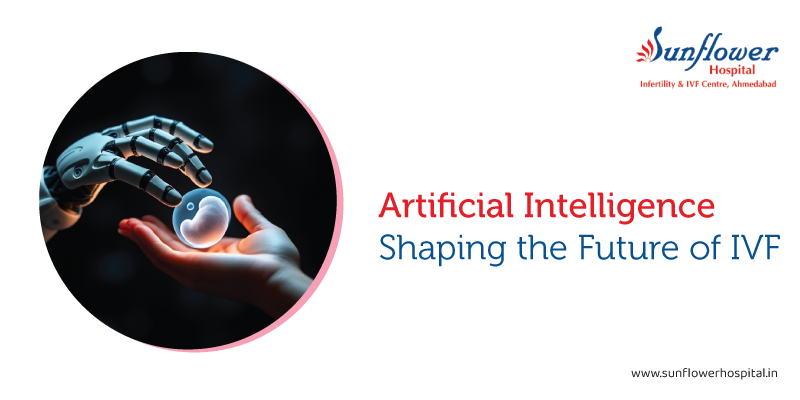Infertility has become a significant global concern, affecting one in four couples, an astonishing 48.5 million worldwide! This alarming rise has turned it into a rapidly growing epidemic.
However, to address infertility, couples can choose IVF (in vitro fertilization) treatment. In simple terms, IVF is a medical procedure designed to assist individuals struggling with infertility issues in conceiving a child.
Today, in-vitro fertilization (IVF) has helped transform reproductive medicine, offering hope to couples struggling with infertility. Advances in medical technology over the years have greatly increased the success rates of IVF treatment in India.
One of the most exciting innovations is the rise of Artificial Intelligence (AI) in IVF treatments. So, if you are wondering how AI helps in IVF treatments, keep reading this blog to know the answer.
The Impact of AI in IVF Treatment
Although AI in IVF treatment is still in its early stages, it has already shown significant potential in improving outcomes. By leveraging advanced algorithms, AI can analyze huge amounts of IVF-specific patient data, such as genetic history, medical records, and hormone levels.
This data-driven approach helps automate critical processes and improve decision-making, tasks that are traditionally handled by clinicians and infertility specialist in India.
How AI is Used in IVF?
AI contributes to IVF treatment in the following key areas:
Embryo Selection
AI plays a crucial role in embryo selection. Traditionally, embryologists manually evaluate embryos to determine their viability. AI-powered tools can process hundreds of thousands of embryo images and precisely identify those with the highest likelihood of successful implantation, improving the precision of selection.
Moreover, these systems can predict the genetic score of an embryo through the same analytical process.
Predict Outcome
AI can help process extensive patient data, including medical history, hormone levels, and genetic information. By analyzing this data, AI can estimate the probability of success of a specific IVF cycle. This enables doctors to personalize treatment plans more accurately, thereby boosting the likelihood of a successful pregnancy.
Hormone Monitoring
Hormone levels play a vital role in IVF, and AI systems offer an advanced solution by monitoring hormone fluctuations in real time. It helps doctors to make swift adjustments to medication dosages, ensuring accurate control throughout the process. Such accuracy significantly boosts the chances of successful egg retrieval and optimal embryo development.
Time-Lapse Imaging
AI can analyze time-lapse videos of embryos as they develop, offering continuous monitoring throughout the process. This technology enables more informed decision-making on the optimal timing for embryo transfer.
Semen Analysis
Lastly, AI can provide correct and complete semen analysis without any operator-dependent variations, reducing the risks of incorrect reports and diagnoses.
Benefits of AI in IVF
Personalized Treatment Plans
With the help of AI, you can enjoy customized treatment plans to suit your specific needs, maximizing the chances of success while minimizing potential side effects.
Improved Success Rates
AI’s ability to process complex data increases the chances of a successful IVF cycle, reducing the occurrence of failed attempts.
Cost-Effective
IVF treatments generally involve multiple cycles, adding up the costs. However, AI-powered procedures typically lead to fewer cycles, thereby reducing the overall IVF treatment cost in India.
Conclusion
In the end, AI is revolutionizing IVF treatments by offering greater precision, efficiency, and personalization. From embryo selection to hormone monitoring, AI’s role in IVF treatment is boosting success rates, reducing costs, and providing couples with more effective fertility solutions.


Leave a Comment